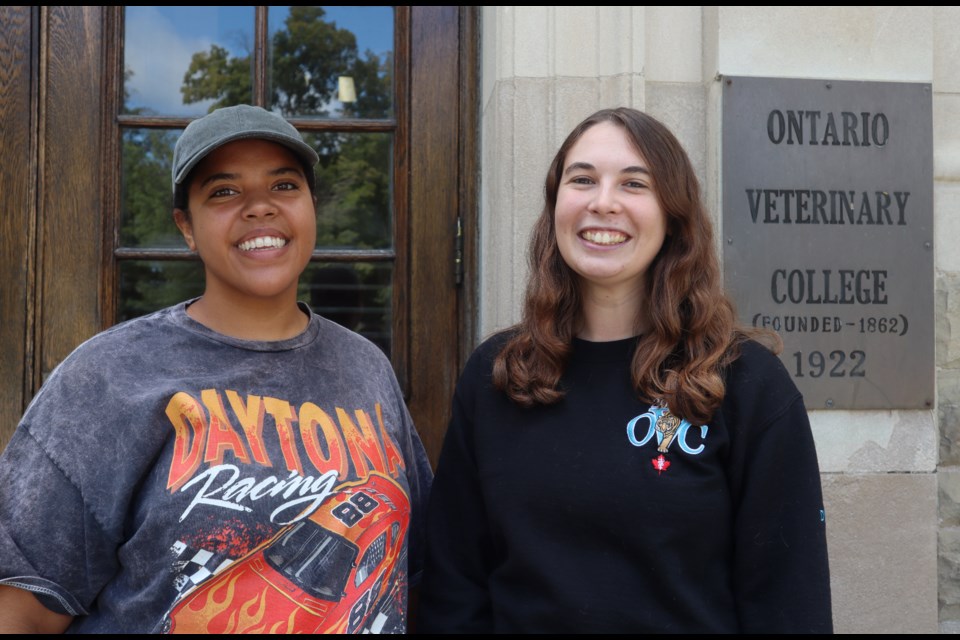Two University of Guelph students had an experience like no other over the summer.
Keisha Harris and Sandra Nyman travelled to Africa where they got to use their skills learned as Ontario Veterinary College students and apply them to animals in Ghana.
They learned about women farmers and even took care of a stray cat called Moose.
Harris and Nyman didn’t know each other before volunteering in northern Ghana with Veterinarians Without Borders (VWB). They bonded over the three months they spent together.
“I want to learn about international medicine. I want to see how things work in other places. That was really my focus was just having an adventure for the summer,” said Nyman.
"I thought it would be great to see how veterinary systems work abroad," said Harris.
Harris had never done international development work before and her impression before going was like the “Sarah McLachlan commercials,” she said. Mixed with a little white savourism too. But VWB acknowledged its history in international development and moving forward is trying to be sustainable with ethical involvement abroad, Harris said.
Harris and Nyman picked up a stray cat they named Moose before gifting the cat to Dr. Anthony Akunzule, executive director of the Ghana Poultry Network (GAPNET) who they worked with. Moose, now called Peacemaker, had to be neutered, which was a challenge.
“I think it gave us a really good appreciation for how medicine can be done in different ways, using different protocols and using the resources that you have available to you. I think that was a good career learning experience for us,” said Harris.
In the first six weeks of their time in Ghana they helped vaccinate goats and sheep from peste des petits ruminants. It can be devastating to these animals.
Harris and Nyman estimated they vaccinated 5,000 animals with help from volunteer Marley Blok.
The women lived in a home built by Akunzule and their neighbour had a litter of puppies. They took care of a puppy they named Banku. Blok ended up adopting Banku and brought him home to Canada.
The volunteers set up training sessions for locals and farmers to teach them how to decrease the spread of disease in their animals. Most of the attendees were women, they said.
“I feel like part of this project is educating women farmers who are caring for animals and sort of making them feel empowered in their role as a member of the household and contributing to their household,” said Nyman.
GAPNET is encouraging farmers to use animal rearing as an income source, she said.
“Being there firsthand, just to see how gender roles are so entrenched in day-to-day life and a cultural belief and they hold a lot more value than someone like me from Canada can even understand. So it just gave me a good appreciation at the pace at which some initiatives move globally,” said Harris.
“Looking back on it, it was one of the best experiences I've ever had. I'm just really glad that I did it. Going on this trip I just feel I made so many friendships and made so many relationships,” said Nyman.
It was international networking, said Harris. To create connections with colleagues abroad is great for whenever you have a question about the field, she said.
“At the end of the day, Canada also is not exempt from veterinary shortages, resource shortages and things like that, especially in northern and remote communities. It was like a really nice cross cultural learning for things for us to take back if we're in remote areas if we are resource constrained, things like that. So there is overlap in some of the things that we both struggle with,” Harris said.
Harris and Nyman both want to go back to Ghana. For Harris it could be as early as December.
